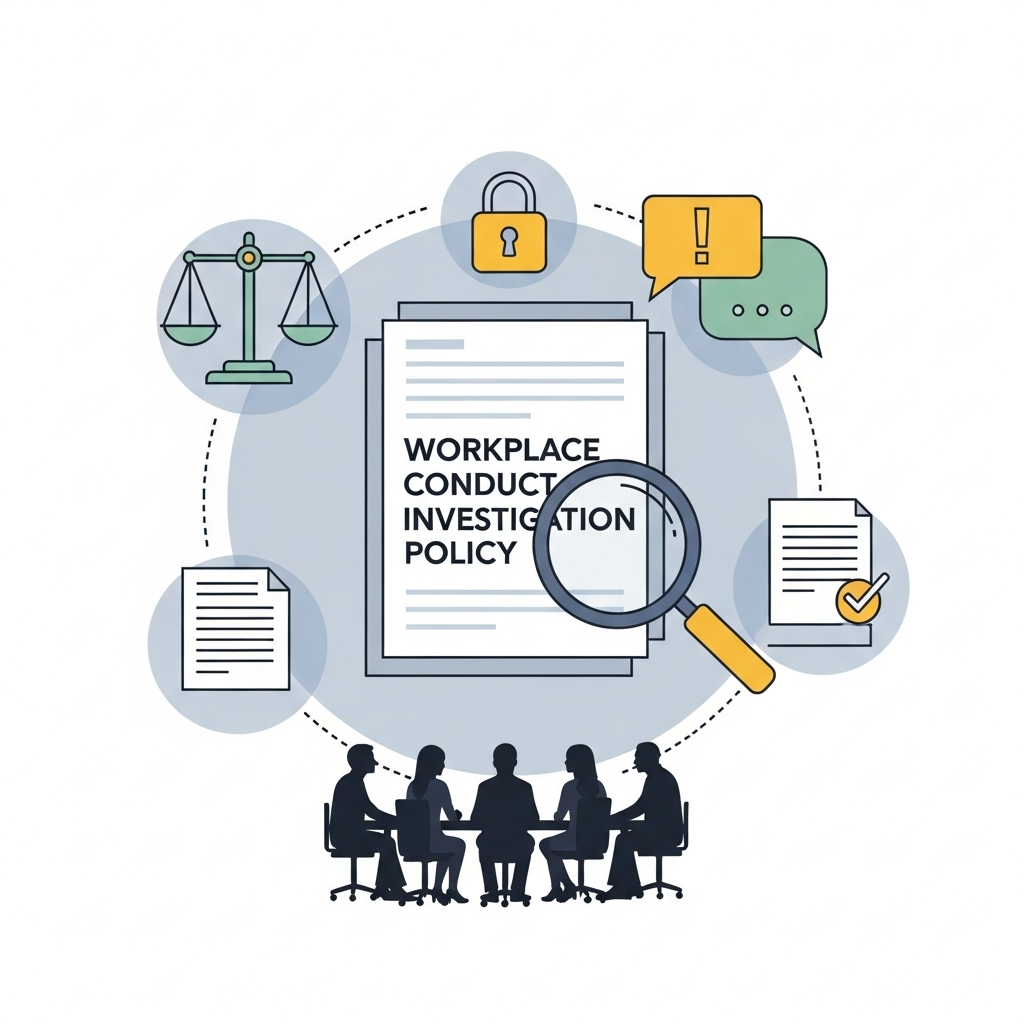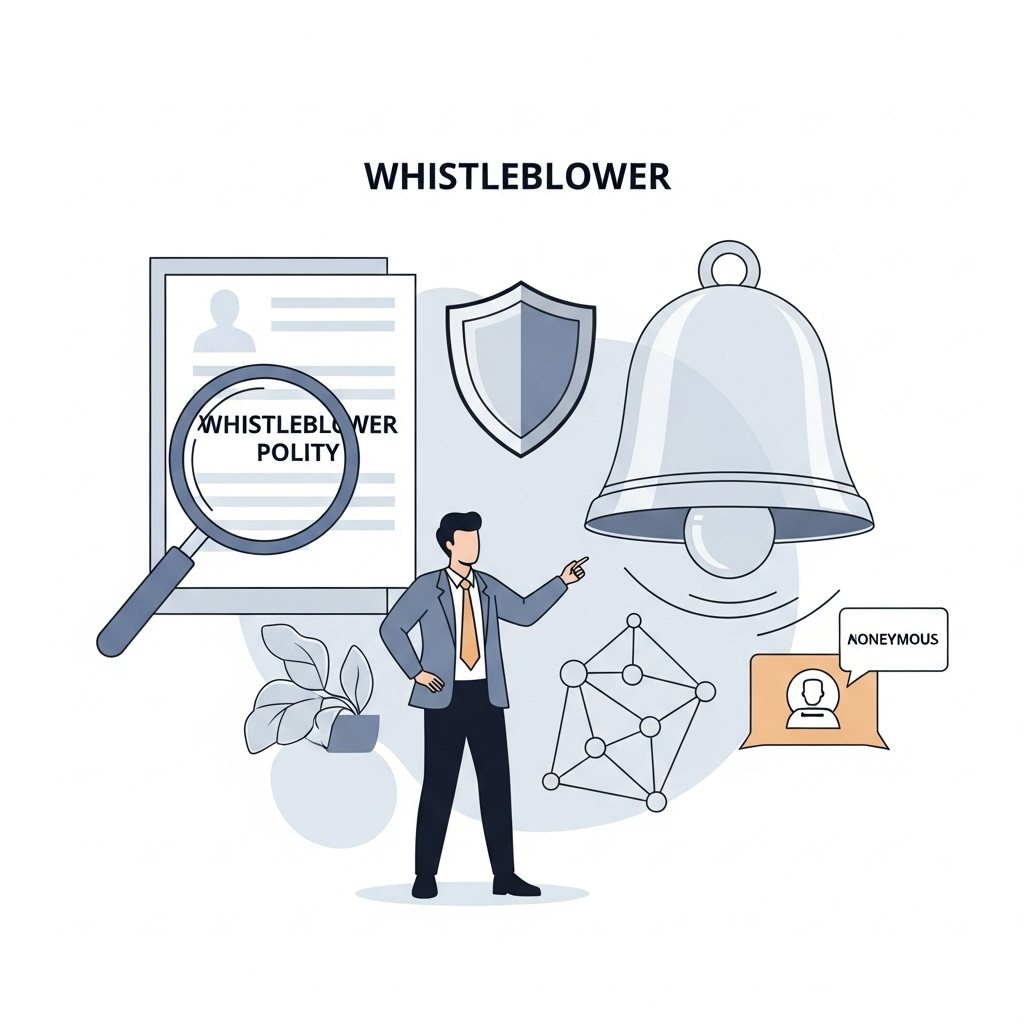Definition
A Workplace Conduct Investigation Policy is a structured set of guidelines designed to address complaints about inappropriate behavior in the workplace. It helps ensure that any allegations of misconduct are handled fairly, thoroughly, and promptly, promoting a safe and respectful environment for all employees. Think of it as your organization’s roadmap for navigating potentially sensitive situations while maintaining professionalism and compassion.
Key Components
This policy isn’t just a formality; it’s a vital part of creating a positive workplace culture. Here are the main elements that make up an effective Workplace Conduct Investigation Policy:
- Reporting Concerns: Employees should feel empowered to voice their concerns without fear. This means having clear channels for reporting issues, whether to a supervisor, HR, or a designated point of contact. For instance, you might have an anonymous hotline or a dedicated email address for complaints, ensuring employees feel safe reaching out.
- Confidentiality: Protecting the privacy of everyone involved in an investigation is crucial. This means sharing information only with those who need to know, which helps maintain trust within your team. Imagine a situation where an employee fears retaliation; knowing their report will be handled discreetly can make all the difference.
- Investigation Process: Once a concern is reported, a prompt and thorough investigation should follow. This typically includes interviews, document reviews, and gathering evidence. For example, if someone reports harassment, the investigator may speak with witnesses and review emails or messages to get a complete picture of the situation.
- Impartiality: It’s essential that those conducting the investigation are unbiased and free from conflicts of interest. This ensures that all parties involved feel heard and respected. You wouldn’t want an investigator who has a personal stake in the outcome, right?
- Conclusion and Action: After the investigation, a report should summarize findings and recommend actions. Depending on the situation, this could involve disciplinary measures, training sessions, or even a simple conversation aimed at conflict resolution.
Importance in the Workplace
Why is having a Workplace Conduct Investigation Policy so critical? Well, consider a scenario where an employee reports bullying, but there’s no clear process in place to manage the situation. This could lead to an uncomfortable work environment, decreased morale, and even higher turnover rates. By having a solid policy, you’re not only addressing issues as they arise but also showing your team that you take their concerns seriously. It fosters a culture of transparency and trust, which is essential for attracting and retaining top talent.
Best Practices
Implementing a Workplace Conduct Investigation Policy requires thoughtful planning and execution. Here are some best practices to keep in mind:
- Regular Training: Ensure all employees are trained on the policy and understand what constitutes inappropriate conduct. Regular workshops can reinforce these concepts and keep everyone on the same page.
- Clear Communication: Make the policy easily accessible. Whether it’s a part of your employee handbook or posted on your intranet, ensure everyone knows where to find it and understands the procedures.
- Encourage Reporting: Create a culture where employees feel comfortable reporting issues. This could involve regular check-ins or anonymous surveys to gauge employee sentiment.
- Prompt Action: Time is of the essence when it comes to investigations. Delays can exacerbate problems, so aim to start investigations as soon as a report is made.
- Follow-Up: After an investigation, check in with the involved parties to ensure the issue has been resolved and to assess if the workplace atmosphere has improved. This demonstrates a commitment to ongoing support and improvement.
Legal Considerations
When drafting and implementing your Workplace Conduct Investigation Policy, it’s essential to stay aware of relevant laws and regulations. This may include labor laws, anti-discrimination laws, and workplace safety regulations. For instance, ensuring compliance with the Equal Employment Opportunity Commission (EEOC) guidelines can help protect your organization from legal repercussions. Remember, a well-structured policy not only guides internal processes but also safeguards your organization against potential lawsuits.
Conclusion
Understanding and implementing a Workplace Conduct Investigation Policy is vital for fostering a respectful and safe work environment. It shows your commitment to addressing issues fairly and transparently, which in turn promotes employee satisfaction and loyalty. With the right guidelines in place, you can navigate workplace challenges effectively and cultivate a culture where everyone feels valued and heard. So, take the time to craft a policy that reflects your organization’s values, and watch as your workplace thrives!




